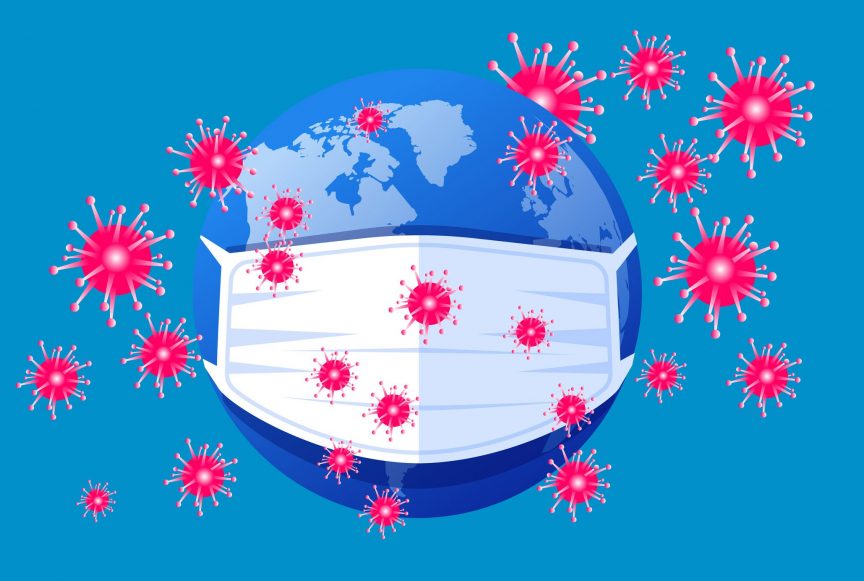
2019 novel coronavirus pneumonia spreading worldwide,Virus crisis, planet wearing medical mask
Speaking recently to the New York Times, Ms Sandra Zampa, Under Secretary of Italy’s Health Ministry, said when Covid-19 first spread in China, Italians followed events as they would do a science fiction movie. Not much later, when the novel coronavirus came to its shores and ravaged Northern Italy, she said Europe “looked at us in the same way we looked at China”. That is not as a warning, but something as remote and alien as an eerie piece of fantastical cinema.
When
a disaster occurs, particularly in the US or in Europe, it is common to compare
them to movies. What people mean when they make the comparison is that life has
actually gotten too ‘real’. But terrorist attacks, such as 9/11, are so
shocking to modern existence that Hollywood, with its casual explosions of epic
and bombastic violence, is the obvious reference point. On film, when world
leaders give inspirational speeches about the need to vanquish a foreign
threat, it is not an infrequent occurrence that they get in a fighter jet to do
the dirty work themselves. And they usually get the job done in double quick
time, before the inevitable sequel.
In real life (even if what this means is being
redefined every week), things are different. While the devastation of 9/11
occurred on a single day, the protracted and bloody war it gave rise to still
has consequences in the Middle East almost two decades later. In the West, the
onset of the Iraq war gave rise to massive demonstrations. But as the years
passed, with the exception of terrorist attacks, the events of the Middle East
became remote again to westerners and unfolded, as usual, on television. The
migration of Syrian refugees to Europe, which sparked an ugly lurch rightward
in many countries, was a societal reminder that what happens in other parts of
the world has knock-on effects. We are not just spectators looking at a cinema,
television, laptop, or phone screen.
What is extraordinary about the current Covid-19
crisis is how the news cycle is both moving quickly and slowly. It is moving
quickly in that the number of confirmed cases and deaths continue to rise
daily, as new measures to tackle the crisis are announced with alarming
regularity. But this pace is in some ways deceptive. While the statistics and
measures may change, what stays the same is that Covid-19 is the only item on
the agenda. We are in the midst of a crisis, one that has really only begun and
will be with us for a long time. The measures announced, which are
unprecedented in peacetime and amount to the shutdown of most of society, are
to last weeks, perhaps months, perhaps longer. Nobody really knows. City
streets from New York to Sydney, usually bustling with activity, are getting
quieter and quieter. There is no news apart from that associated with the
coronavirus. The traditional distractions of modern society have suddenly dried
up. It has closed pubs, theatres, concerts, and sporting events. It has even
halted film production.
Watching the news is like looking at a hall of
mirrors. Different world leaders, sometimes in different languages, are saying
what boils down to the same thing: Things have changed. Sacrifices must be made
to protect lives and ease the pressure on health services. The closure of
businesses and limitations on movement announced in one country are announced
in others the following day. In narrative terms, this is described as
foreshadowing. Only when they are announced in your own country does it truly
hit home. It is perhaps too soon for lessons to be taken, but what the pandemic
has already shown is that we are all connected, even if we must now stand
apart.





Leave a Reply
You must be logged in to post a comment.